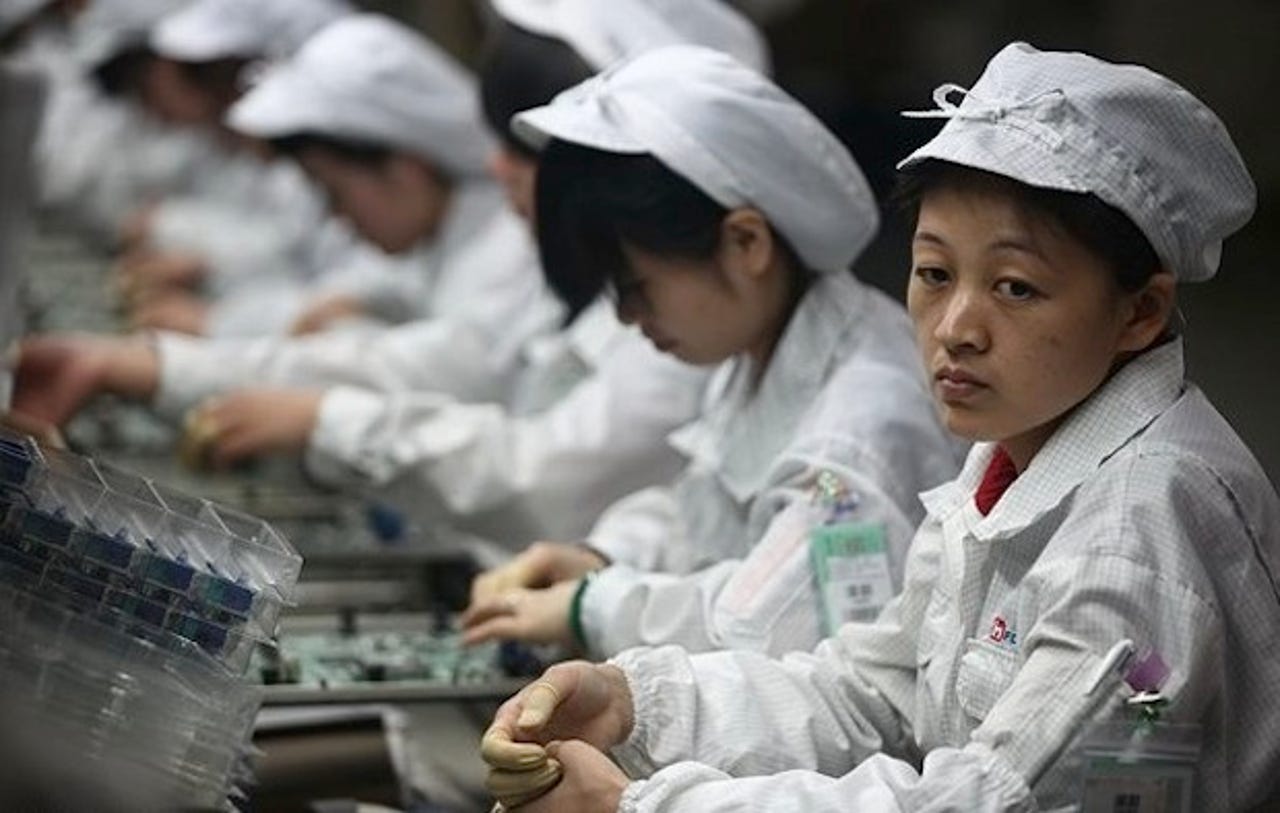Chinese workers threaten suicide at Foxconn: Not 'why', but 'is enough being done'?

When 300 men and women climb onto a rooftop and threaten to commit suicide in protest over denied compensation, it is impossible not to wonder how a company could lead its employees into such desperation.
But Foxconn did.
A little over a week ago, 300 employees at Foxconn's Technology Park in Wuhan, China threatened their own lives because they were denied a vital pay increase. Foxconn told them they could either keep their jobs without it, or they could quit and be compensated.
Many chose to quit, but the company terminated the agreement, and none of the former workers received the promised compensation.
Production at the company was temporarily halted. It was not until 9 pm the next day that the town's mayor was able to talk the 300 down from the roof.

Foxconn has been at the center of some considerably uncomfortable controversy over the last two years, after its high suicide rates and poor working conditions came to light. In total, it is thought 14 workers committed suicide in 2010.
Although previously the company's suicide rate was well below the country's average, it's hard to downplay those numbers now.
Foxconn installed suicide nets at their factory last year, and workers in Chengdu are required to sign a "no suicide" pact in their contracts.
These are just a few of the many small details that add up to a more worrying whole.
Some are already wondering why they would choose suicide as their means of protest. But there are no unions for them to join, and striking would be ineffectual as they could just be replaced.
The truth of this situation is that their lives are the only thing they really have to fight with, and threatening suicide might have been the only way these workers could get their employers to take notice.
Even that, sadly, might not be enough. "If they were concerned about lessening human suffering, they would improve worker conditions and raise wages. Profit maximisation is the name of the game," one Reddit user commented.
The company intends to increase the number of robots used in the factory from 10,000 to a million in the next three years, according to Foxconn chairman Thierry Gou. It is not hard to see why; the reason given is to deal with rising salary costs.
With over 1.2 million workers to consider in mainland China, Foxconn is thinking with numbers in mind.
From a more individual perspective, this increase could be seen as a way that Foxconn is trying to improve the situation for their workers. The demand for the products made by the company for Apple, Microsoft and other major consumer brands is not going to wane any time soon.
Everybody wants a part of the growing market, and in the end the costs will add up in both wages, but also in human lives. It might be 14 suicides in 2010, but that could become 300 in 2012, as these protesters showed.
Would increasing the number of robots on factory lines improve working conditions for Foxconn's human workers? It might save them from having to do the kinds of jobs that could leave their health damaged, but it also might leave them desperate and out of work.
As many people have been saying, "a bad job is better than no job".
We tend to think of China as being a dominant, growing superpower in a time of global recession, without considering the wider implications of how any company or any country can build profits, and succeed with no sacrifice.
In Asia, working hours are expected to be long, and conditions can often be tough. Everyday on the Tokyo Metro, hundreds of salarymen can be seen catching up on sleep in tiny minute-long snippets -- anywhere they can -- and it is considered culturally normal.
They are not joking when they tell you that this city never sleeps. There is never a time when the noise stops. It is an ever-constant groan on the lives of millions.
Japan has one of the highest suicide rates in the world, and the picture of China does not bode well either. An estimated quarter of a million people in China commit suicide every year out of a population of 1.3 billion. When you look at that statistically, the workers at Foxconn would still be seen as a drop in the ocean.
Foxconn is probably only one of many companies and factories that tell the same story.
Looking back, the question might not be "why" employees of Foxconn are committing suicide, but, "is enough being done" to prevent it?
In the last two years, when critical focus on Foxconn has been at its highest, it seems the steps taken have not been enough. Will the protest of three hundred lives make a difference to that?
Image source: CNET.
Related
- Is Apple's suicide factory outsourcing to even cheaper Chinese peasants?
- Media gets its facts wrong: Working at Foxconn significantly cuts suicide risk
- Foxconn factory explosion in iPad 2 building, 2 killed and 16 injured
- Foxconn explosion: Apple iPad supply impact unclear, dangers of combustible dust
- Apple's iPhone 5 likely to stress Foxconn
- ZDNet UK:Foxconn eyes robot workforce